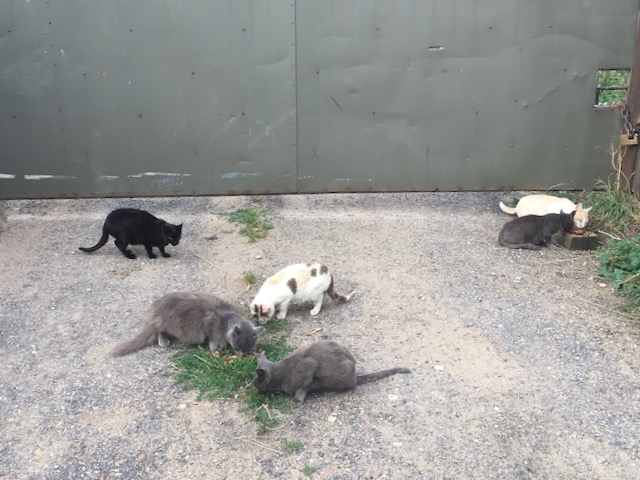I am lucky enough to have a home and regular meals. Many of my sisters and brothers lead wretched lives on the street - starving, flea ridden, and terrified. Please help them by
getting your human to wise up on what to do about them. Spread the word that these cats can be helped. International Cat Care has a lot online about how to help them - https://icatcare.org/unowned-cats/feral-street-community-cats/
Just feeding the cats, like the video above, isn't enough. But regular feeding is the beginning of a process. It is called Trap Neuter and Return - or TNR. Neutered cats are healthier than un-neutered ones. Females often die after endless kitten bearing and males die of diseases transmitted by fighting. Neutering means that the colony isn't full of diseased kittens, many of which will not survive into adulthood.
Feed regularly first. Then trap. Then neuter and euthanise those suffering from diseases. Rehome the stray cats that are used to human homes. Rehab, tame and find homes for young kittens. Return the adult feral cats to the site. Continue with regular feeding for a healthy colony and to keep an eye out for strays or feral cats that turn up.
That way, newcomer cats can also be trapped and neutered and the colony will eventually die out. This should please the people who want to see fewer cats. Their solution of merely shooting or poisoning strays and ferals usually merely results in newcomers taking over the empty territory.







